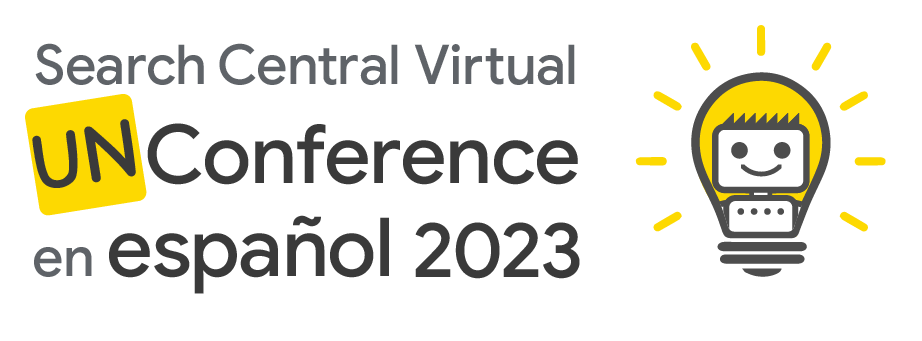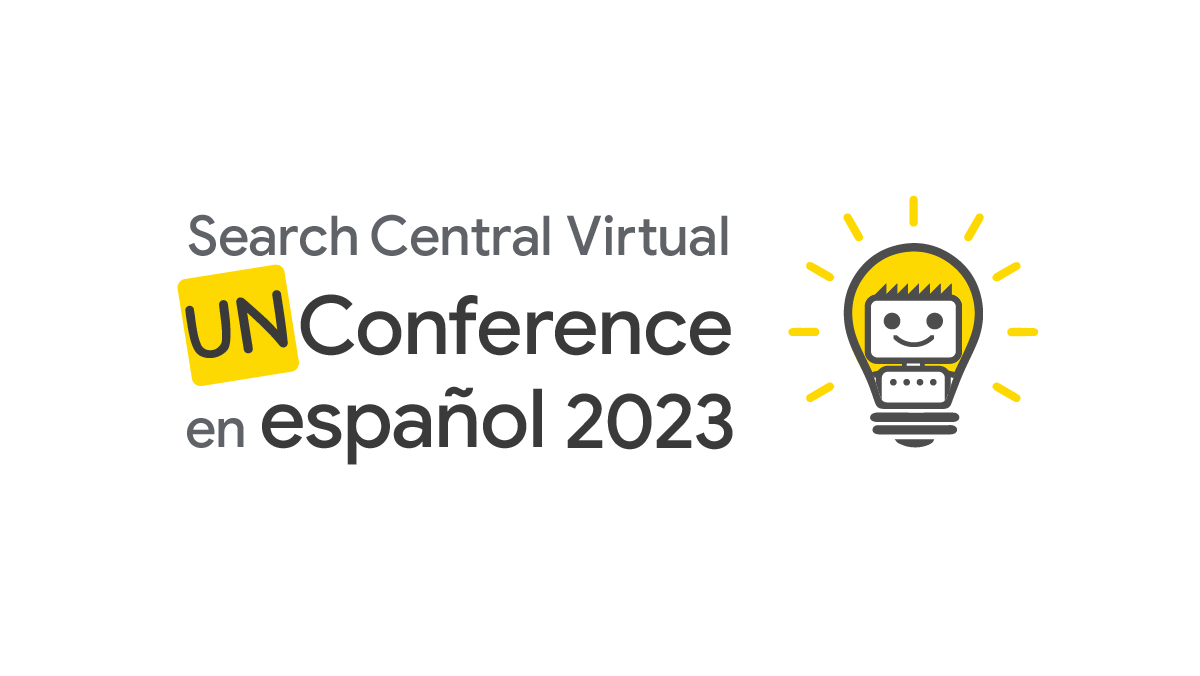Monday, April 3, 2023

When we launched the Search Central Virtual Unconference series, we got a lot of feedback to organize events in multiple languages. On February 17, 2023 we held the first Virtual Unconference en español after receiving a lot of requests for an event in Spanish.
Start reading in Spanish
We were amazed by the energy of our 140+ participants of different backgrounds and professions managing websites of various types and sizes. We were happy to see so many ideas exchanged, experience shared, and valuable feedback provided. We received overwhelming registrations around the world and offered spots to registrants from more than 25 countries worldwide!
There were 13 discussion sessions orchestrated by 18 facilitators, and here are some of the things we learned from these sessions:
- Web rendering—does it affect SEO?: We were happy to see the discussion around resource optimization, prioritizing important parts of the sites, using metrics to make changes, web performance, and user experience. Participants shared their questions, knowledge and experience on various topics such as crawl budget, client and server side rendering, how Google renders Javascript sites, and page pagination.
- SEO for site migration: Most challenges come from expectations of stakeholders who don’t take SEO into account or decisions that are made without involving SEOs. It’s cool to see participants sharing tips on stakeholder management such as understanding business motivation, preparing talking points, documenting discussions and setting the right KPIs. At the same time, participants saw site migration as a chance to improve SEO. Many shared essential SEO steps to take for site migrations and tools for different purposes including project management and pre- and post-migration auditing.
- E-E-A-T: How will it affect our market?: It’s great to see participants that are managing sites from different sectors share their views, questions, and experiences around E-E-A-T. We learned that more transparency and more examples in this area may be useful. Also, there were interesting discussions on AI generated content and the importance of focusing on content that users love and satisfies Search intent.
- SEO complements: Skills to develop to empower ourselves as professionals: SEO requires a variety of skills: communication, negotiation, technical know-how, market knowledge, research, strategizing, task management, writing, and patience. And, that is what makes many of you love being an SEO. The multi-skill requirement opens up numerous paths for career progression such as team management, business strategy, client relationship, analyst or other specialization. Many of you agree that there is no specific route to success and self learning is a big part of it. Our personal highlight was to see so much love in the community and participants from many different backgrounds from someone with one-year experience in SEO to a veteran. It’s really moving to see that there is a strong and supportive community to lean on. 😍
- What are the benefits of integrating Google Search Console with Google Analytics 4?: We saw a lot of feedback and insights coming in from this session, for example, people appreciate automated reports, combining revenue metrics with SEO metrics, and customization on GA4 which is helpful but requires some time to set up or understand. It’s also nice to see the use of other tools or frameworks beyond Search Console and GA4 such as Looker studio (also known as Data studio), Python, and Search Console API.
- SEO in the Media: How to help a journalist increase the visibility of their content on Google: We heard you—SEO is a mix of both content and technical stuff (and a little bit of magic) and that’s why it’s important (and challenging) to advocate SEO to journalists and content writers. It’s cool to see many tips such as communicating with the editorial team, continuing to educate others, and using data to show the value of SEO. There were also discussions on how Discover is big for Spanish speaking users, and on AI generated content and the challenge it poses when distinguishing it from human produced content.
- UX and SEO: UX is part of any digital marketing technique and, as such, SEOs must work with other teams such as design, UX, and even paid traffic. Building relationships with other teams might help implement ideas faster. It can be tricky to balance UX and SEO, so negotiation and feasibility assessments are useful. Analytics tools are essential to perform any kind of Digital Marketing task (SEO, UX, conversion rate optimization, campaigns). Decisions should be made based on data.
- Technical SEO and BigData on large sites: Server logs can be useful to bridge the gaps of web analytics tools. So many tools were discussed, especially ones that don’t require heavy programming such as R Studio, Looker studio, BigQuery, MongoDB, Clickhouse, and Airbyte. People shared tips such as segmenting data, leveraging on templates and prioritizing based on client’s priority, as well as potential work areas such as internal linking, indexing, detecting duplicates, and optimizing titles or headings. Oh! And we passed the Search Console API feedback to the relevant teams.
- How to make an SEO forecast and not die trying: SEO forecasting is complicated with many things to consider including competitions, keywords, other business or team plans such as content and development, and external environmental factors. To do it, one should estimate time, budget, and effort and leverage tools. Setting goals or measurable objectives might be preferable to forecasting especially considering a potential misalign of expectations or legal obligations within an organization.
- Learning SEO, formal education, courses, and resources on the web: Participants shared their views on existing resources available in Spanish. Some formats such as formal courses with and without certification are still limited in many locations or content is not as updated as they are in English. Many find online courses on YouTube and course platforms very useful. Some participants identified self teaching, learning how they learn best, and having mentors as useful strategies. Others also shared their views on AI and the change in SEO roles and important skills SEOs should have.
- Writing with artificial and human intelligence: There were a lot of interesting discussions on what people think of AI, how it can be a helpful tool for optimizing resources when used wisely, the importance of focusing on high quality content and adding a human touch on top of AI, duplicated content with and without AI, and how content creators should improve their skill to balance AI with human skills.
- Ecommerce SEO: How to take advantage of Google products for your ecommerce: It’s cool to see that people find Search Console, Merchant Center, and Google Analytics useful in the ecommerce space and share features or techniques that have been working for them. There were many interesting discussions such as aligning with paid traffic strategy, moving to GA4, and the importance of format beyond text search such as images, Google Shopping, and Google Lens. We also passed along feedback on Google Search Console such as data availability for a longer duration.
- SEO for international business in 2023: SEOs shared that they have a lot of thinking to do when it comes to international websites such as payment options, currency, legal or policy requirements, and language. There are some challenges, such as localization that includes cultural nuances, having translators who understand the effect of their work on SEO, localizing visual elements, performance measurement, choosing subdomains or territorial domains, using HTML tags, and leveraging automation.
We learned that our events help communities get together, exchange ideas, and build stronger networks, so this won’t be the last event of this kind. Many people want longer sessions and some have already arranged to meet or connect after the event. It’s super nice to see! We’re also working on bringing these events to other languages, so stay tuned for future events.
